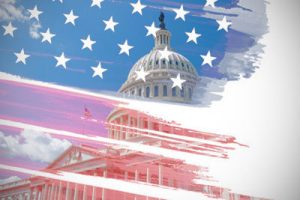
The following article reflects the knowledge, experience and sound opinion of the authors and should in no way be construed as legal advice. Online gamblers in any U.S. state should consult the laws of their respective state or seek legal advice to determine whether online gambling at unlicensed offshore websites or at gambling establishments licensed by the regulator and located anywhere other than their state of residence constitute a criminal offense or a right that responsible adults are free to exercise. The same applies to federal gambling laws or other secondary issues related to online gambling.
regulators from seven US states have contacted the US Department of Justice to urge the Department of Justice to do “something” about offshore competition in the online gambling market.
Don’t understand federal law?
As is often the case with such promotions, the signatories relate to all offshore gambling sites with a wide spectrum, whether intentional or not, and lump all other gambling operators in the same basket. and They are roughly referred to as online gambling sites “illegal”.
At least that’s the conclusion, as state regulators and spokespersons for the American Gaming Association (AGA) consistently neglect any real distinction between Offshore Licensed Casino Sitesthe illegal sports betting sites and the small handful of operators offering unlicensed services to gamblers in the US.
To paint to all online gambling providers Using the same rough brush, it appears disingenuous at best to the informed consumer or observer.
The latest PR move is co-signed by regulators in some of the most financially successful US gaming states, including Colorado, Illinois, Louisiana, Michigan, Mississippi, Nevada and New Jersey.
Among the issues raised in the letter to US Attorney General Merrick Garland are some real and unrealistic dangers that the uninformed assume are associated with online gambling. These include age verification, money laundering concerns, responsible gaming protocol, fair gaming and lack of state tax revenue.
The letter also states that offshore operators are not subject to any permit requirements. Most of these points are false and are most likely based on bona fide misunderstandings about how offshore online gambling operators work.
Well over 90% of offshore casinos and most sportsbooks serving US players have done so License in the jurisdiction of Curaçao (formerly known as the Netherlands Antilles). Operators must verify the player’s identity, age, possession of the financial instruments used for deposit, address, subscription to local public services and often at least a copy of their bank statements.
Three decades of compliance
Operators in the offshore jurisdiction of Curaçao have followed essentially the same protocol since the mid-1990s.
These documents cover almost every concern raised by regulators, including money laundering concerns.
He Gaming Licensor A state-sanctioned bank ensures that anti-money laundering concerns are addressed by international authorities in accordance with an anti-money laundering and countering the financing of terrorism (AML/CFT) framework that addresses both risk issues.
In short, the so-called “document review”, which as any offshore actor knows, is used by 99% of all offshore operators, solves all the problems listed except for responsible gambling and tax collection issues.
Responsible gambling is only addressed at the most critical level, which is player self-exclusion. Even there, if an operator denies self-exclusion to a player, the Curacao license will be revoked. However, there are no additional tools available for players to set deposits or time limits, enforce breaks at prescribed time intervals or do other things that might be required by stricter regulatory bodies such as the Malta Gaming Authority or the British Gambling Commission.
As a result, competition for gambling money and state tax revenue remains hidden under accusations of illegality and the black market.
While this may seem counterintuitive, offshore casinos are not federally illegal, nor have they ever existed in the United States. However, it is up to each consumer to check the laws of their own state to determine if the practice may be legal in their state. If a competent attorney is named, they should be consulted.
The Interstate Wire Act of 1961
In the United States, interstate or interterritorial sports betting is illegal It has been since 1961. While the US Department of Justice has sided with casino moguls like the late Sheldon Adelson under various administrations and has ruled that offshore casino gambling is illegal, lottery company IGT, which by gross revenue largest in the world, recently filed for a declaratory judgment and received judgment (once and for all) making it very clear that the Interstate Wire Act only applies to sports betting. Casino gambling law has no federal law prohibiting it.
The difficult gate in this reality is this UIGEA (Unlawful Internet Gambling Enforcement Act of 2006), which does not create new gambling laws or amend existing laws, as clearly stated in the Act itself. However, it renders most online financial transactions (deposits and withdrawals) illegal and constitutes de facto money laundering simply because US financial institutions have received “guidance” assuming the Interstate Wire Act applies. Applies to all interstate or interterritorial bets.
However, the fact is that offer a gambling service or that a US citizen participate in gambling extraterritorial At the federal level, it’s not a criminal offense under any law, which this publisher has witnessed in nearly three decades in the industry. So it’s unclear how Attorney General Merrick Garland could help state regulators unless he attacks the practice “from the outside” and holds it down due to the misdirection of the Federal Trade Commission (FTC) and the Federal Deposit Insurance Corporation (FDIC). for illegal. released during the Bush administration in 2007 as part of the wrong premise That the Law Interstate cables actually applied to everything except sports betting.
In the letter to AG Garland, Michigan Gaming Control Board (MGCB), Executive Director Henry Williams states: “Michigan has strict internet gambling and sports betting laws and rules designed to protect consumers, promote trust and ensure honest and fair play. We stand ready to assist the US Department of Justice in any way we can in enforcing US laws against illegal gambling establishments extraterritorial that our citizens take advantage of.”
“Government regulators like MGCB ensure operators offer products that pass technical standards and testing, and we also require operators to comply with reporting requirements.”
“The operators extraterritorial They flaunt government regulations and offer products that do not protect the public, which is of great concern to me and my fellow government regulators.”Williams added.
He continued: “Regulated operators recognize that licensing is a privilege that can be revoked, but illegal operators do not face similar consequences for failing to comply with the law and uphold their integrity.”
Spring: Regulators are asking the US Department of Justice to take action against offshore gamblingiGaming Business, May 5, 2023













